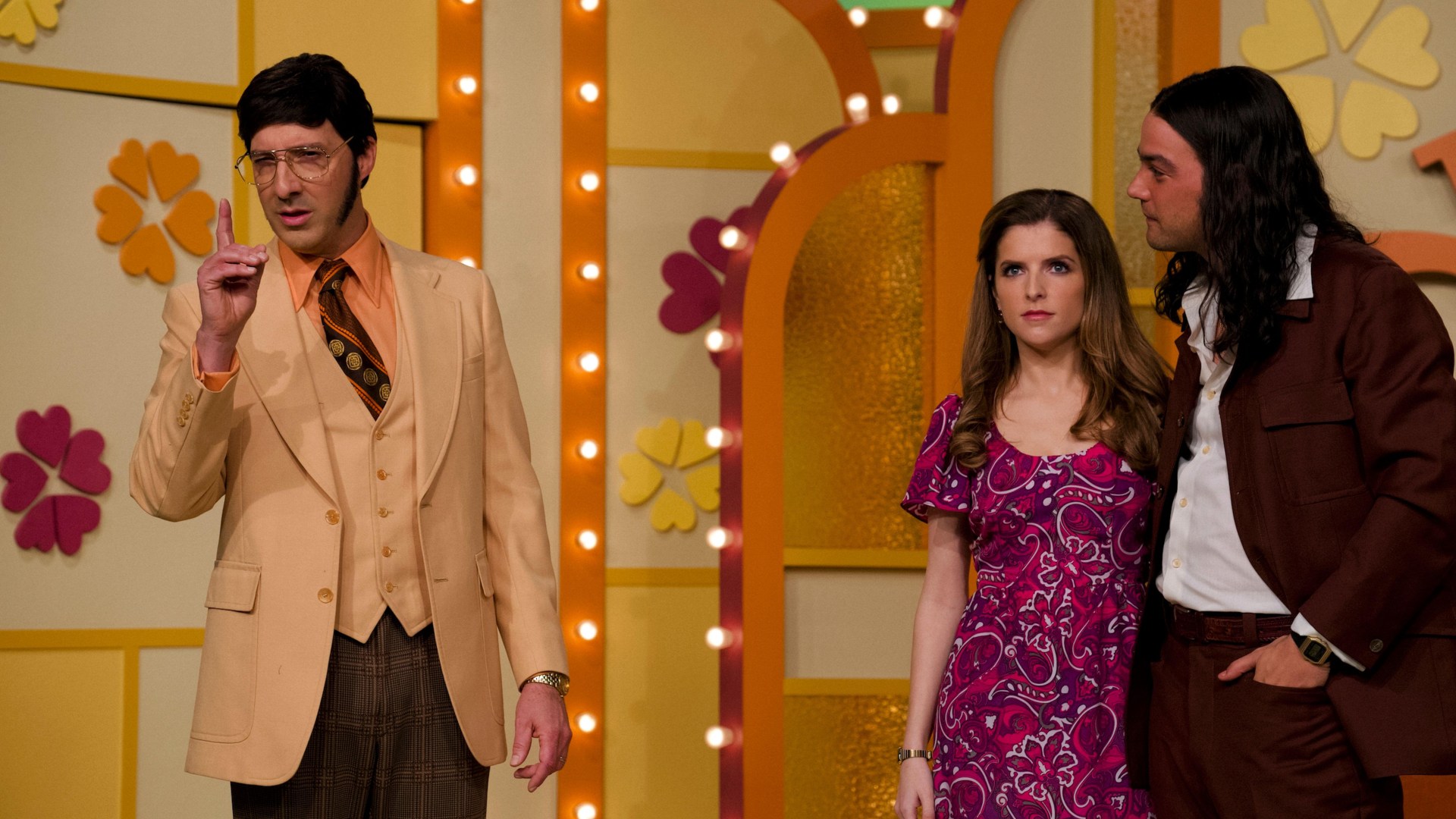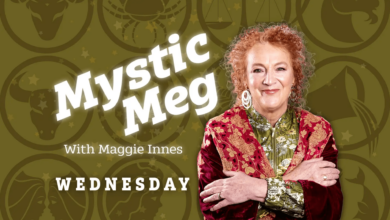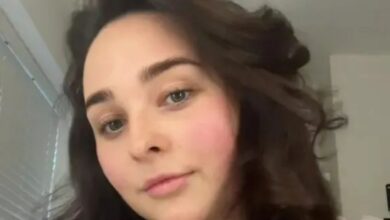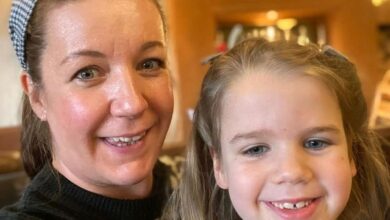How teacher was wooed with one-liners by bachelor on TV show who hid secret

HE posed on TV as a bachelor looking for love – but as a new Netflix film reveals, Rodney Alcala had a more sinister agenda.
We investigate the brutal and bloody story of one of America’s most prolific serial killers.
On a TV show set in California in 1978, the host of the wildly popular The Dating Game introduced three bachelors.
Hidden behind a screen, they were trying to woo a female contestant and win a glamorous date.
“He’s a skydiver, he’s also into motorcycling and he’s also a fine photographer,” announced the host.
“Say hello to Rodney Alcala!”
READ MORE ON SERIAL KILLERS
It was true that bachelor number one was a photographer with a fine arts degree from UCLA.
However, what the host, the audience, and the bachelorette Cheryl Bradshaw didn’t know, was Alcala was also a serial killer who used his camera to lure female victims to remote locations and murder them – and he’d already murdered five women.
In the months after his game show appearance, he would continue his killing spree, and investigators would soon discover a storage unit full of hundreds of photos of women he’d persuaded to pose for him.
Many of them were presumed missing, but are now believed to have been potential prey for the serial killer.
And yet here he was, hunting in plain sight for his next victim on prime-time television.
The story of Alcala’s sexually motivated murders and audacious targeting of victims has now been dramatised in Anna Kendrick’s directorial debut, Woman Of The Hour, coming to Netflix on October 18.
The actress – who shot to fame in the Twilight films – also stars as Cheryl, and the movie will tell the tale of one of America’s most prolific serial killers.
Alcala died in hospital in 2021 before his death sentence could be carried out, taking with him the true tally of murders he committed.
There’s weird vibes that are coming off him. I’m not comfortable
Cheryl Bradshaw, who dated Rodney on the TV show
Cheryl Bradshaw, then 27, was a drama teacher from California.
After a Q&A-style chat with each of the three bachelors behind the screen, she chose Alcala – who’d charmed her with cheeky, innuendo-laden answers and a witty sense of humour.
However, after the show, having spent time alone with Alcala backstage, Cheryl approached contestant coordinator Ellen Metzger and, according to an interview Ellen gave in 2021, Cheryl told her: “I can’t go out with this guy.
“There’s weird vibes that are coming off of him. He’s very strange. I am not comfortable.”
It’s likely Cheryl’s instinct saved her life – but many other women were less fortunate.
‘The level of sadism this man was visiting upon his victims was deeply disturbing’
After growing up in Texas, Alcala’s family moved to LA, where he excelled at school and joined the military at 17.
But his time there was marred with disciplinary problems and he was discharged after three years.
His chilling hunt for victims began in 1968, when he was 25, and he fled California for New York after a warrant for his arrest had been issued for the rape and assault of an eight-year-old girl named Tali Shapiro, who he had beaten with a steel bar and left for dead.
The FBI put Alcala on their Most Wanted list in 1969, but he eluded capture for years and stalked the streets of Manhattan, where he found his first murder victim on June 12, 1971.
Cornelia Crilley, a 23-year-old flight attendant was found strangled in her own apartment, her bra covering her face and a bite mark on her left breast.
READ MORE TRUE CRIME STORIES
“The level of sadism that this man was visiting upon his victims was deeply disturbing,” says Matt Murphy, the district attorney who eventually prosecuted Alcala in 2010 and put him on death row.
Crime forensics was in its infancy in the early ’70s and NYPD detectives could only rely on fingerprinting, neighbourhood canvassing, bloodwork, and a rudimentary comparison of suspects’ teeth to a mould taken of Cornelia’s breast injury.
The murder went unsolved, leaving Alcala to begin working as a counsellor at an arts camp for young girls in New Hampshire, under his new alias, John Berger.
In August 1971, two girls who had been attending the camp saw Alcala’s Most Wanted poster in a post office, leading to his arrest and extradition to California for the brutal assault on Tali Shapiro three years before.
Tali’s parents were reluctant to let their daughter, who was still only 12, testify, so instead of being charged with rape and attempted murder, Alcala was convicted of the lesser charge of child molestation.
“After what he did to Tali Shapiro, the parole board let him go after just 34 months. It was madness,” reveals Matt, who is also the author of The Book Of Murder: A Prosecutor’s Journey Through Love And Death.
But less than two months after Alcala was released on parole in 1974, he assaulted a 13-year-old girl named “Julie J” in court records, which got him arrested again.
‘My mother phoned, drew a deep breath, then said the detective just called…’
After his second release in 1977, Alcala had only been back in Manhattan for a week when Ellen Hover, his second victim, was unfortunate enough to cross his path.
Her cousin, Sheila Weller, recalled in an interview what she knew about Ellen’s last movements.
She said: “He approached Ellen in Manhattan with the offer of capturing her loveliness with his camera.
“He was ‘pressuring her to have lunch with him,’ as a close friend of hers remembers it.
“She went on that lunch date and never came back.”
New York police detectives found the name “John Burger” scrawled on Ellen’s desk calendar for July 15, 1977, the day she went missing.
The 23-year-old was the daughter of one of the most famous nightclub owners in Hollywood, and the god-daughter of Rat Packers Dean Martin and Sammy Davis Jnr, so her disappearance certainly did not go unnoticed.
READ MORE TRUE CRIME STORIES
“Nightclub heiress goes missing,” screamed the city’s tabloids, posters of the missing woman were displayed all over the city, and Ellen’s family hired their own private investigators.
“Eleven months later, my mother phoned, drew a deep breath, then said: ‘The detective just called. It’s the worst.’
“Ellen’s bones had been found at the old Rockefeller estate in New York,” Sheila recalled.
The location was a favourite photo-shoot spot for Alcala.
Ellen’s bones were so decomposed that police had to use dental records to identify her body.
After Ellen’s murder, Alcala switched coasts to Los Angeles to continue his killing spree.
In November 1977, he killed 18-year-old Jill Barcomb, then, a month later, his next victim was cancer nurse Georgia Wixted, 27.
In June 1978, he murdered 32-year-old legal secretary Charlotte Lamb, before pausing his murder spree to appear on The Dating Game, taking advantage of the fact that there were no background checks made by the show’s producers.
‘We haven’t been able to identify all his victims’
After appearing on TV, he killed 15-year-old hitch-hiker Monique Hoyt in February 1979, and computer programmer Jill Parenteau, 21, that June.
His blood lust at its peak, it was only a week after killing Jill, that Alcala killed Robin Samsoe.
“Robin was just 12 years old in the summer of 1979,” says Matt.
“She was last seen heading off to her ballet class on her bike by her friend.”
When her friend was questioned by detectives, she revealed how a man had approached them on the beach and asked if the girls would like to pose for him so he could take their picture.
A composite sketch was drawn up and circulated all over Southern California, where it was seen by one of Alcala’s old parole officers who recognised him.
On July 24, they tracked Alcala down to his mother’s house and, after questioning, they found no one could account for his whereabouts at the time Robin was abducted.
He was arrested and charged with kidnap.
Inside were hundreds of photographs – we identified about half of them as missing persons
Matt Murphy on the content of Alcala’s storage locker
Detectives learned, through a secretly recorded visitation session with his sister in prison, that Alcala had rented a storage unit in Seattle.
“Inside were hundreds of photographs of young women, girls, and boys in positions of vulnerability.
“We identified about half of them as missing persons, and there’s just no way he let all those people live,” says Matt.
He adds: “I’m sure a lot of them are his victims and we just haven’t been able to identify them all.
They also found a silk pouch containing a few dozen pieces of jewellery – a trophy case.
“We were able to genetically link one earring with one of his victims, Charlotte Lamb, and Robin Samsoe’s mother identified another set.”
Alcala’s trial for the abduction and murder of Robin Samsoe began in February 1980 and lasted more than two months, with almost 50 witnesses testifying.
Alcala was found guilty, and a death sentence was passed.
However, it was ruled the jury should not have been informed about his attack on Tali Shapiro 12 years earlier when considering Robin’s case.
After a retrial, Alcala was convicted again and handed a death sentence, but this time he appealed and in 2001 another retrial was granted, based on the fact he had not been able to present his own evidence.
However, the delays would ultimately work against him.
Matt reveals: “Just before we went to trial, we received DNA hits that linked Alcala with the murders of Jill Barcomb, Georgia Wixted, Charlotte Lamb, and Jill Parenteau.
“So we decided to trial all five cases together.”
This time, Alcala decided to defend himself, which meant he would have the power to cross-examine witnesses, including parents and friends of his victims.
‘It’s estimated he killed about 100 people’
Matt recalls: “I think he believed he was the smartest person in the courtroom, and he had a desire to control.
He had a Mensa-level IQ, he was a certified genius.”
But his defence was rambling and bizarre, as he asked questions of himself about Robin’s murder in the third person and answered in a deeper voice, trying to convince the jury he was elsewhere when the abduction happened.
When it came to the other four murder charges, he told the jury he didn’t remember killing them.
Unsurprisingly, the jury wasn’t convinced.
He was convicted on all five counts of first-degree murder and sent back to death row to await execution.
Meanwhile, cold case detectives had been working on the murders of Cornelia Crilley and Ellen Hover on the East Coast, and with advances in forensics, they were now able to also link these murders with Alcala, who was flown to Manhattan in June 2012 to stand trial.
He entered a guilty plea, and it seemed that even Alcala was now resigned to the fact his horrific crimes had finally caught up with him.
He was returned to death row in California’s San Quentin prison, however, the death penalty was suspended in California in 2019, and in 2021, Alcala died of natural causes, aged 77.
Even after his successful convictions, there is still one thing that nags away at Matt.
“We will never know his final tally, as that died with him.
“But at the rate he was killing, it’s estimated he murdered about 100 people.
“We interviewed him towards the end of his days, asking him to help us identify his victims for the families.
He could have brought some sense of peace, but he refused to do it,” adds Matt.
“Rodney Alcala was evil until his dying day.”




